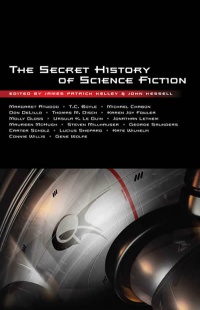 Arthur C. Clarke’s 1993 novel The Hammer of God came about in a somewhat interesting fashion. His 1973 classic Rendezvous with Rama started with the background story of an asteroid collision with Earth that led to the creation of the Spaceguard project meant to detect other potential problems (which is how the Rama craft was spotted). In 1992 the U.S. Congress directed NASA to begin just such a detection program, and named it Spaceguard in Clarke’s honor. This in turn inspired Clarke to write a novel devoted entirely to the asteroid impact scenario, the result being The Hammer of God.
Arthur C. Clarke’s 1993 novel The Hammer of God came about in a somewhat interesting fashion. His 1973 classic Rendezvous with Rama started with the background story of an asteroid collision with Earth that led to the creation of the Spaceguard project meant to detect other potential problems (which is how the Rama craft was spotted). In 1992 the U.S. Congress directed NASA to begin just such a detection program, and named it Spaceguard in Clarke’s honor. This in turn inspired Clarke to write a novel devoted entirely to the asteroid impact scenario, the result being The Hammer of God.
What can I say about this book? It’s a pretty basic — almost standard — approach to the topic. An asteroid is detected. A spacecraft is sent to intercept and tries to change its course. When this fails, there’s an attempt to blow it up. They manage to break the asteroid into pieces and avert most of the disaster. Along the way there is that common plot element, the sacrifice: the crew of the spacecraft is willing to give up their lives to save the planet (even though they don’t have to follow through with it). There is also sabotage by a fringe religious group that sees the asteroid as God’s will and looks forward to being vaporized when it hits. Throw in a few abbreviated glimpses of the social reaction to such a disaster, and some futuristic technology that doesn’t matter much to the story, and you’ve pretty much got the idea of what this book is about.
In other words, there’s nothing too special about Clarke’s treatment of the subject. It’s certainly a competent novel with a sound scientific backing. But it wasn’t especially exciting or creative. There were no real surprises, no twists that would set it apart from numerous other novels or movies concerning asteroid impacts. Everything that happened was fairly predictable. The characters were not too interesting. There were no big mindblowing ideas. I definitely had a “been there, done that” feeling. I almost feel cheated.
On the plus side, it was a quick and easy read. I breezed through it in about five or six hours, which must be some kind of record for me. Then again, if the story is set on auto-pilot and goes by without making the reader stop and think, that’s not much of a compliment to the author, is it?
At the end Clarke includes a section called Sources and Acknowledgments (around 13 pages long) which was actually, to me, more interesting than the actual novel. In it, he discusses the genesis of the book, NASA’s borrowing of the “Spaceguard” name, some of the real science concerning the asteroid threat, some of the scientists involved, and some of the other science fiction works that have used the concept.
Since it only took a few hours to get through this book, I won’t say it was a waste of time. But nor was it an especially enlightening or entertaining use of that time. This novel was just sort of “there,” know what I mean?














